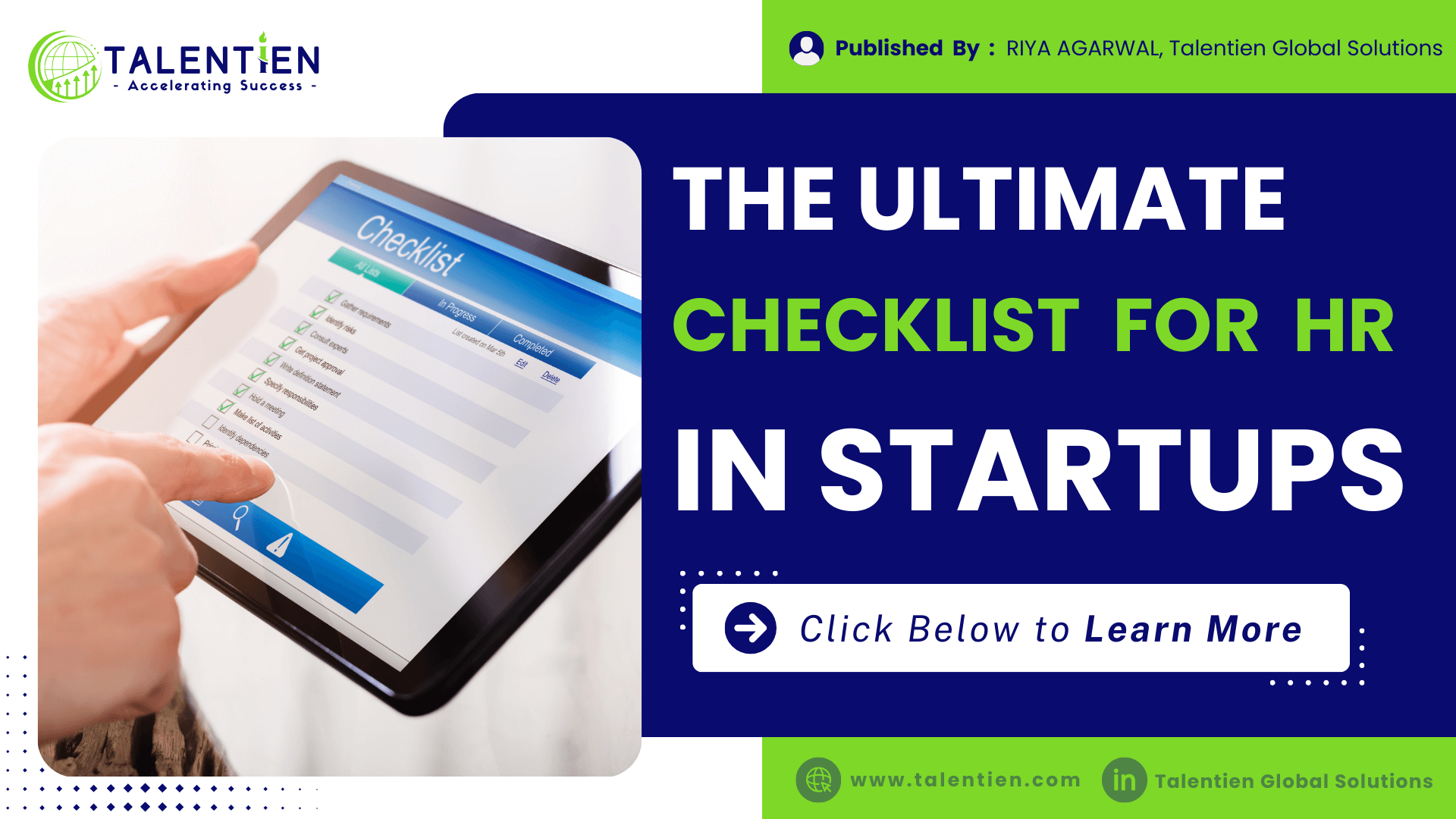Starting a business is exciting, but let’s be real – HR is often the last thing on a founder’s mind. Most startups are laser-focused on product development, sales, and growth.
But here’s the thing: without a solid HR foundation, you might end up dealing with messy hiring, compliance headaches, and a culture that doesn’t scale.
So, how do you build a structured HR department that actually supports your business? Let’s break it down step by step.
Table of Contents
ToggleHR Compliance & Legal Setup
Before anything else, make sure your startup is playing by the rules. HR compliance isn’t just red tape – it protects your business from legal trouble down the road.
✔️ Register your company and get an Employer Identification Number (EIN).
✔️ Draft clear employee contracts and offer letters (job roles, salaries, benefits, policies).
✔️ Establish workplace policies (anti-discrimination, harassment, equal opportunity).
✔️ Get payroll taxes sorted—state and federal compliance is non-negotiable.
✔️ Provide workers’ compensation and insurance (requirements vary by location).
Hiring & Recruitment Process
Your first hires set the tone for company culture. A well-planned hiring process helps you attract and retain the right people.
✔️ Define job roles and responsibilities – no vague descriptions.
✔️ Set up a hiring process (job postings, interviews, selection criteria).
✔️ Use an Applicant Tracking System (ATS) to streamline hiring.
✔️ Conduct background checks and reference verifications.
✔️ Offer competitive salaries and benefits to lock in top talent.
Employee Onboarding & Documentation
Great onboarding = happy, productive employees. A structured process ensures new hires feel welcome and hit the ground running.
✔️ Handle all new hire paperwork (contracts, tax forms, direct deposit details).
✔️ Provide a company handbook covering mission, vision, values, and policies.
✔️ Set up IT and system access (email, software logins, security credentials).
✔️ Give a welcome kit (company swag, office tour, team introduction).
✔️ Assign a mentor or buddy for smoother onboarding.
Payroll & Compensation
People don’t just work for passion – they need to be paid accurately and on time.
✔️ Set up payroll processing (in-house or through a provider).
✔️ Define salary structures and payment schedules.
✔️ Ensure proper tax deductions and benefits contributions.
✔️ Create an expense reimbursement policy.
✔️ Plan performance-based bonuses and raises.
Employee Benefits & Workplace Policies
A good benefits package helps you compete with bigger companies for top talent.
✔️ Offer health insurance and retirement plans (if feasible).
✔️ Set clear leave policies (sick days, PTO, parental leave).
✔️ Establish remote work and flexible hours policies.
✔️ Introduce workplace wellness programs (mental health support, gym perks).
✔️ Organize team-building activities to foster culture.
Performance Management & Training
If you want employees to grow with your company, you need a system to track and support their development.
✔️ Set clear performance goals and KPIs.
✔️ Implement a structured review process (quarterly or annual evaluations).
✔️ Offer learning and development opportunities (courses, mentorship).
✔️ Provide regular feedback and coaching.
✔️ Recognize and reward top performers.
HR Technology & Automation
Startups don’t always have a big HR team – automation helps streamline processes.
✔️ Use an HR software or HRIS to manage employee data.
✔️ Implement payroll and benefits management software.
✔️ Use an ATS to simplify hiring.
✔️ Set up self-service portals for employees.
✔️ Leverage communication and collaboration tools (Slack, Trello, Asana).
Workplace Compliance & Policies
As your company grows, well-defined policies prevent conflicts and ensure smooth operations.
✔️ Establish a code of conduct and ethics policy.
✔️ Implement a diversity and inclusion strategy.
✔️ Outline anti-harassment and workplace safety guidelines.
✔️ Create a grievance and conflict resolution process.
✔️ Ensure compliance with data privacy and confidentiality regulations.
Employee Engagement & Retention Strategies
Keeping employees engaged isn’t just about fun perks – it’s about creating an environment where people want to stay and grow.
✔️ Host regular team meetings to encourage transparency.
✔️ Provide career growth opportunities and internal promotions.
✔️ Implement employee recognition and rewards programs.
✔️ Conduct surveys and feedback loops to improve work culture.
✔️ Organize company events and social gatherings.
Exit Process & Offboarding
Turnover is inevitable. A smooth offboarding process ensures a professional transition.
✔️ Define resignation and notice period policies.
✔️ Conduct exit interviews to gather honest feedback.
✔️ Process final payroll and benefits settlements.
✔️ Retrieve company assets (laptops, ID cards, documents).
✔️ Ensure proper knowledge transfer and handover.
Final Thoughts
A well-structured HR department isn’t just an admin function – it’s the backbone of a successful startup.
Prioritizing HR early on helps avoid costly mistakes, attract top talent, and build a culture that scales with your business.
So, whether you’re just starting out or scaling up, having a strong HR strategy in place will give you the foundation you need to grow and thrive.
Startups that invest in people from day one are the ones that last the longest.
Got questions? Drop them in the comments, and let’s talk HR!
Struggling to streamline your HR process? Let Talentien Global Solutions craft a tailored HR strategy for your business success. Contact us today!



